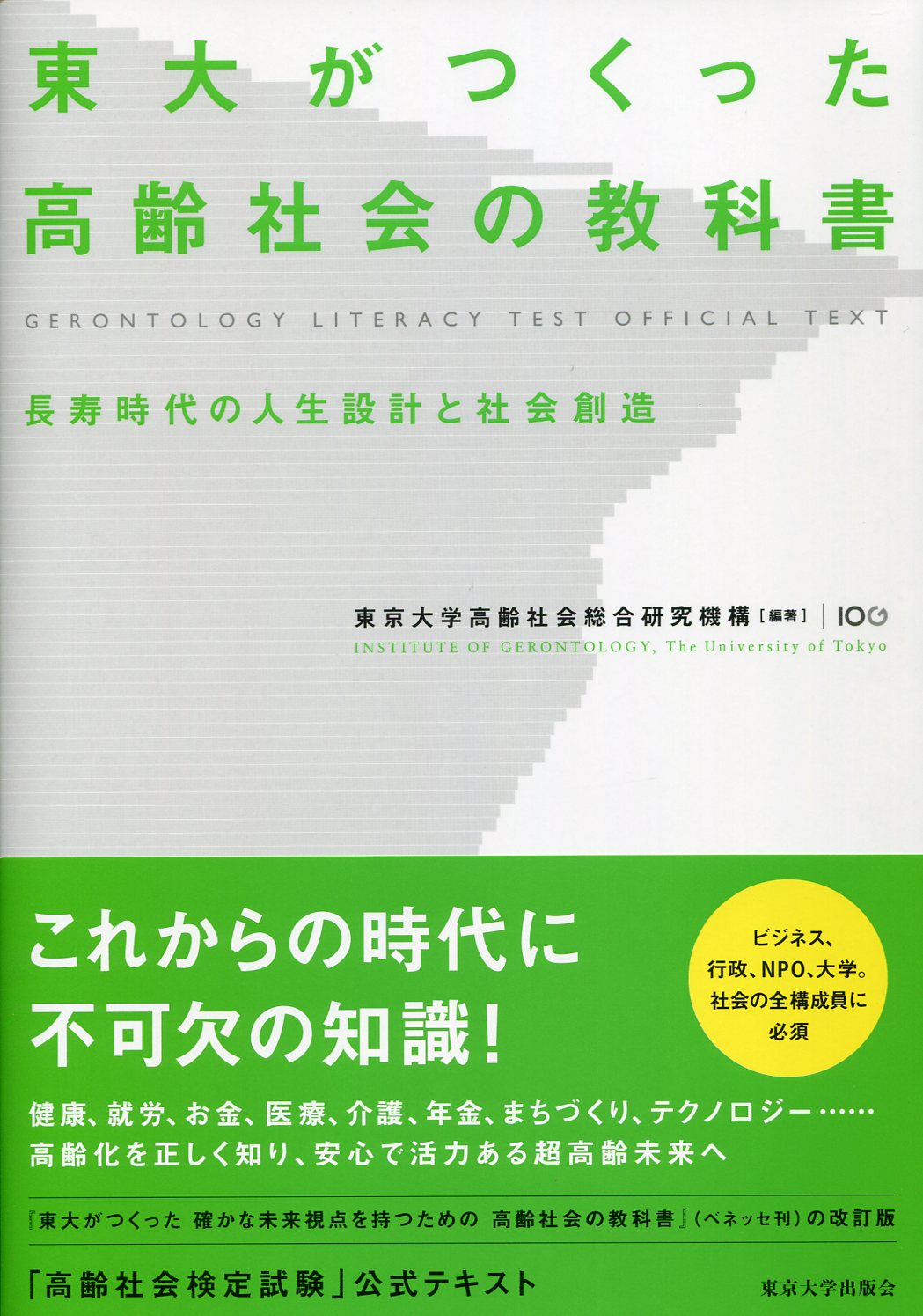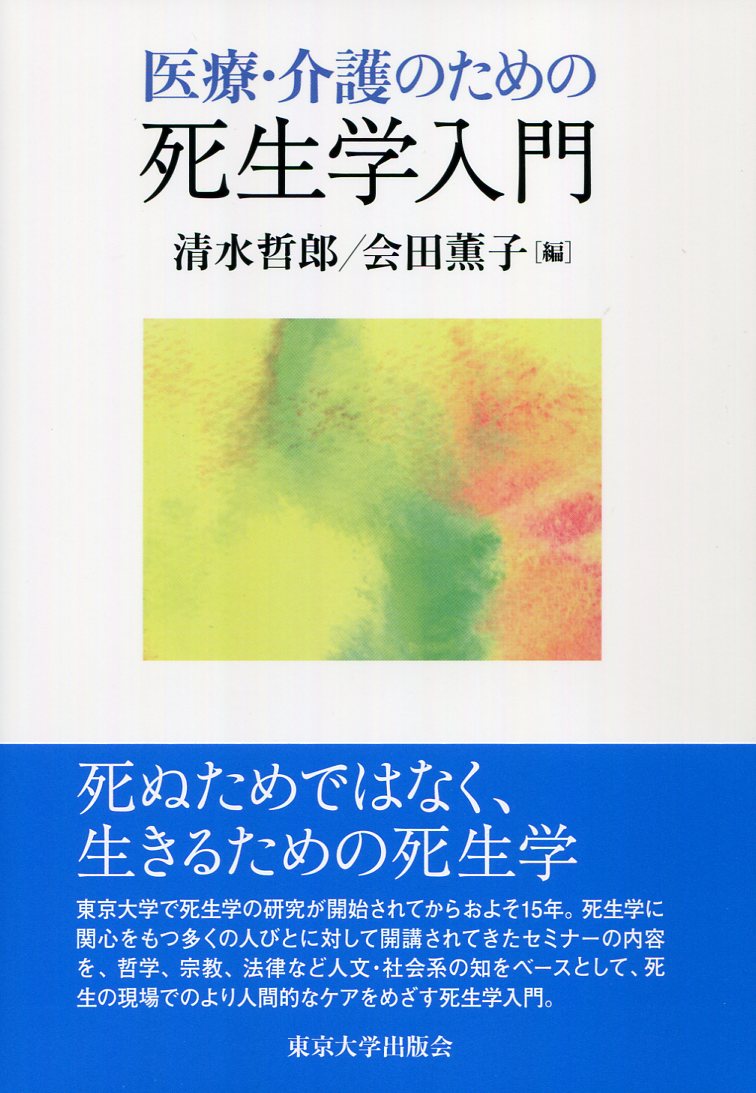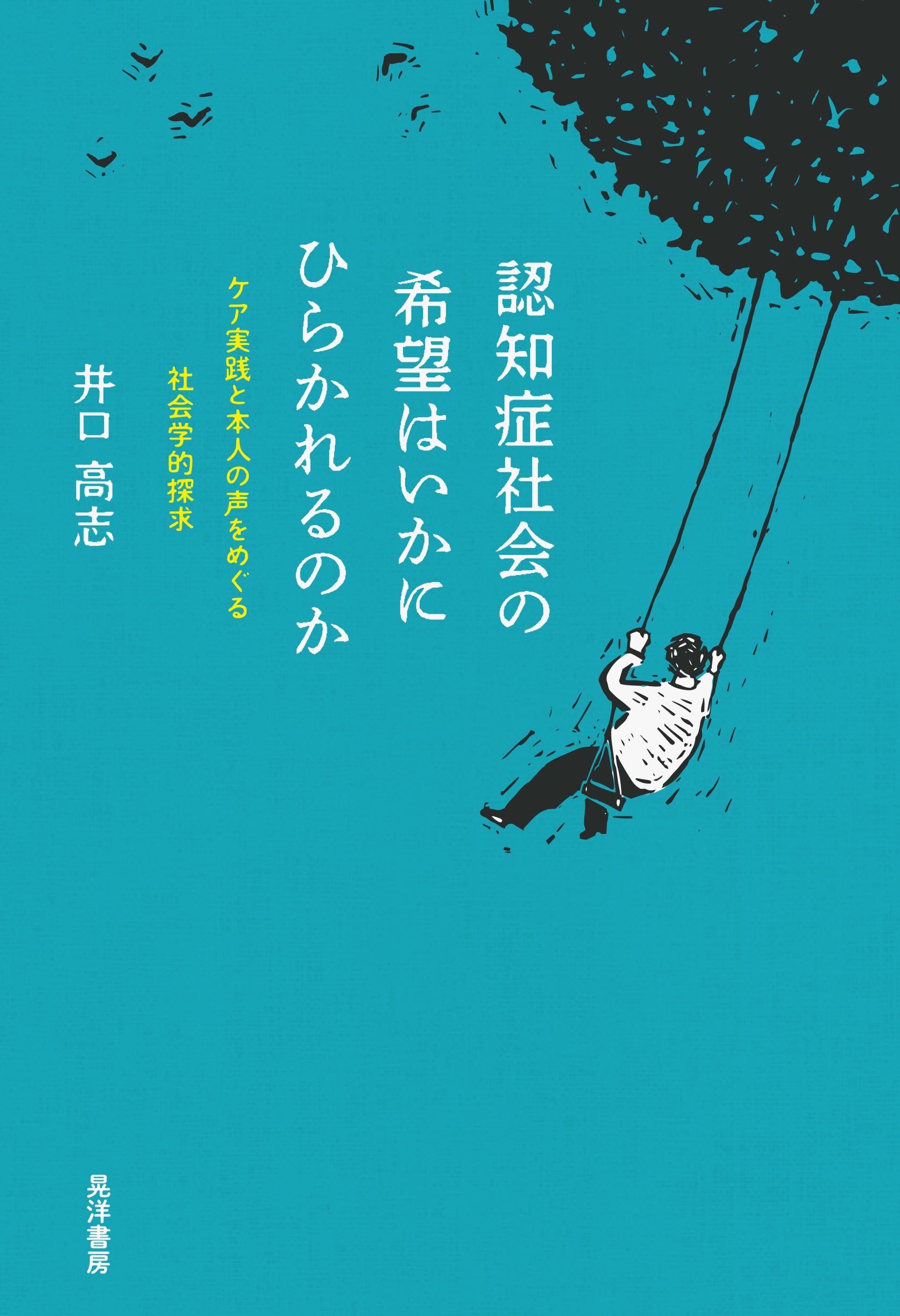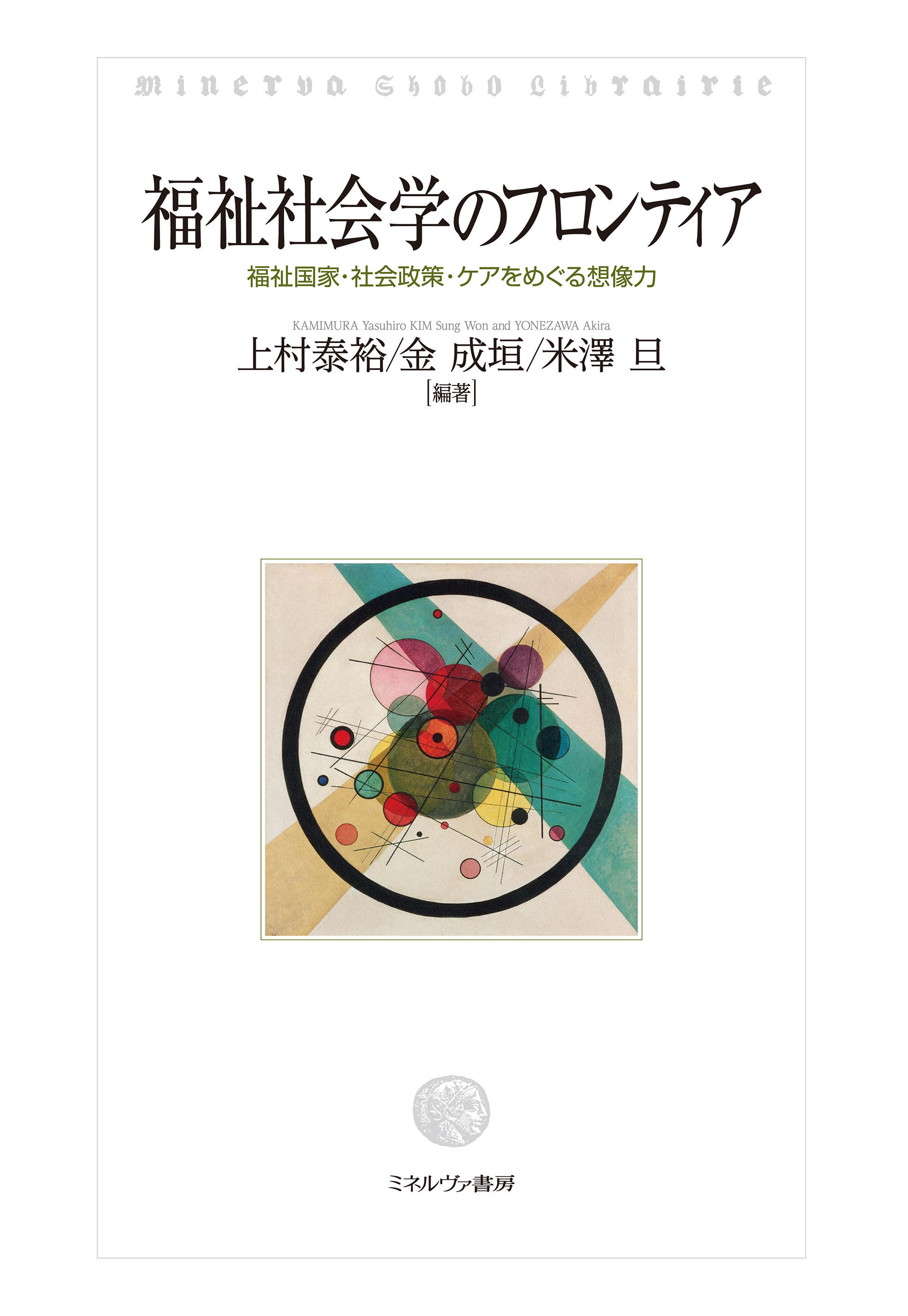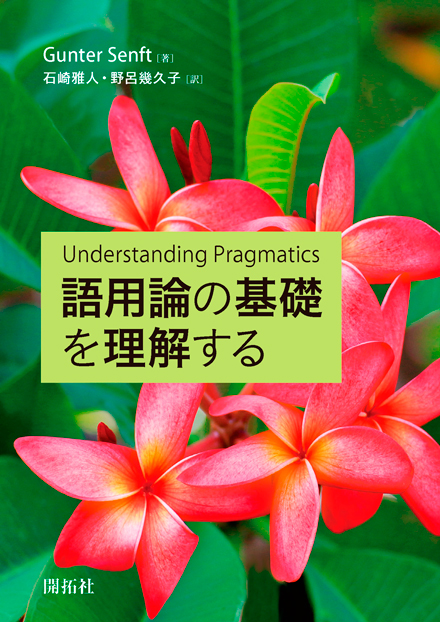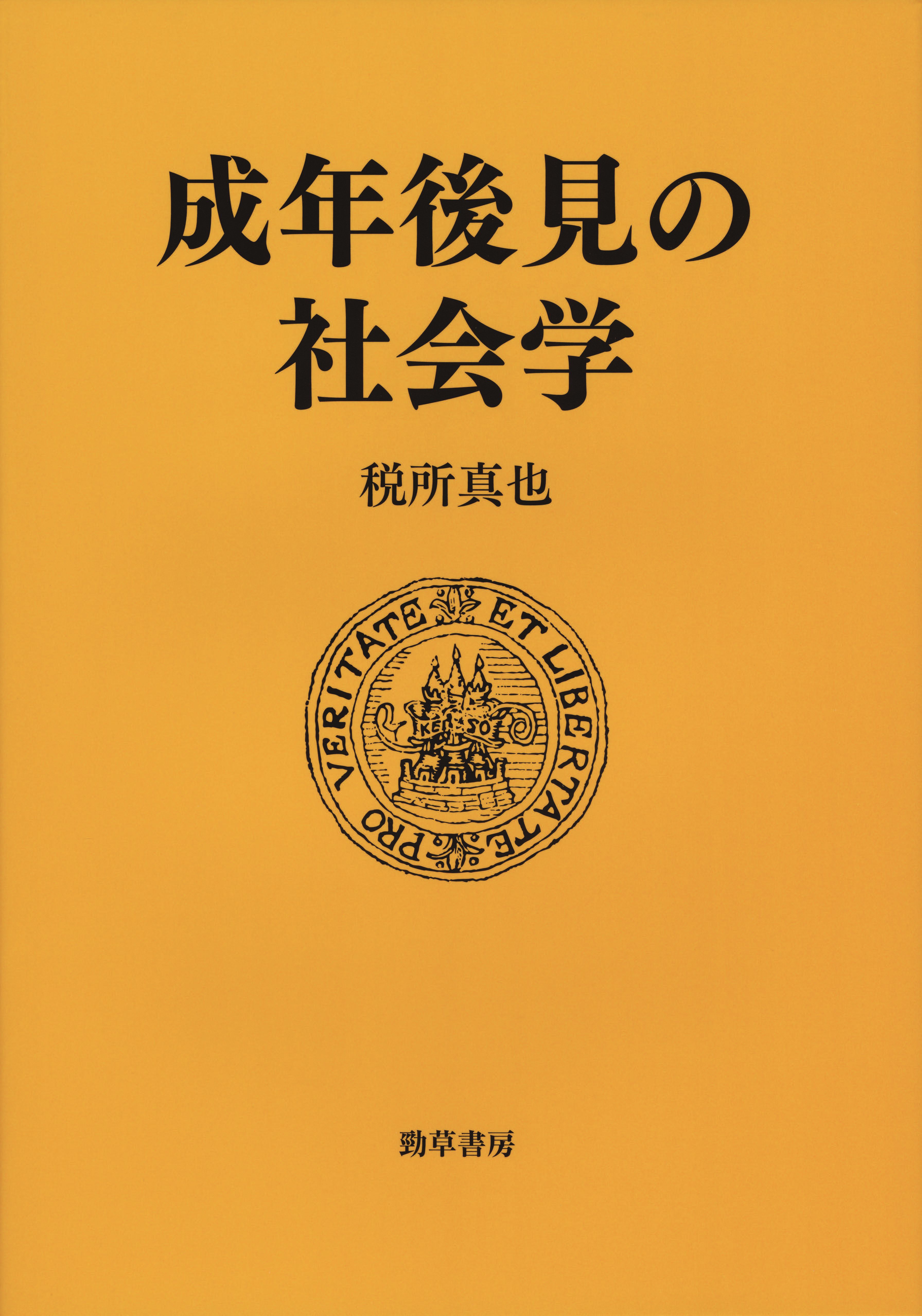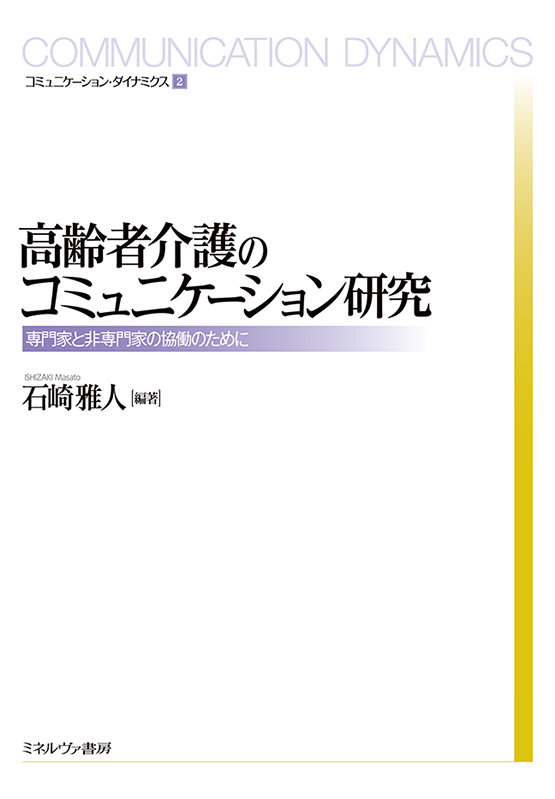
Title
Koureisha-kaigo no Communication Kenkyu (Issues in Communication Related to Elderly Care)
Size
282 pages, A5 format
Language
Japanese
Released
March 31, 2017
ISBN
978-4-62-307872-1
Published by
Minerva Shobo
Book Info
See Book Availability at Library
Japanese Page
This book is a collection of studies attempting to bring some order to discussions about critical issues surrounding elderly care in contemporary Japan from the perspective of expert communication. It is particularly concerned with collaboration among experts, mutual understanding between experts and laypeople, expert practice, and the relationships between experts and institutions. Among the various meanings of the word “communication,” this book focuses on a sense of “communion” or “sharing,” from which the word originally derives.
Collaboration among experts is especially difficult in the case of elderly care because elderly care requires collaboration among experts from different fields. This book examines two contrasting cases: the bottom-up approach taken by a home care working group in Kesennuma (Miyagi Prefecture, Japan), and the top-down approach of a health center in Aira (Kagoshima Prefecture, Japan). This offers some insight into the management of difficulties represented by the concept of “authority gradient.”
The problem of mutual understanding between experts and laypeople is considered in relation to the topics of cafe-style health communication, applied drama, and mediation, all of which are related to the practice of workshops. By bringing people together and promoting forms of exchange not limited to language, workshops offer the possibility of rethinking a social infrastructure predicated on language. Applied drama has the potential of further disseminating the understanding achieved through workshops. Although mediation developed as a means of resolving legal disputes, it can also be a way of promoting expression, since it, too, is an arena where people come together.
In this book, expert practice is considered by looking at how intensive communication is achieved among experts as well as between experts and non-experts (including the elderly themselves) in a group home (a residential care facility for people with cognitive impairments). The derived insights provide a theoretical basis relating to expert behavior in care work in the future.
The relationships between experts and institutions is considered through an examination of the opinions of medical professionals in emergency care and the closely related issues of conservatorship or power of attorney. Thorough discussion is required on life support and terminal care and the design of institutions to manage these issues.
This book engages in a fundamental reconsideration of the language and concepts surrounding elderly care from the perspectives of the people directly involved. While it offers no immediate solutions to the problems of an aging society, it does provide much food for thought on new directions for elderly care in the future.
(Written by ISHIZAKI Masato, Professor, Interfaculty Initiative in Information Studies / 2018)



 Find a book
Find a book


